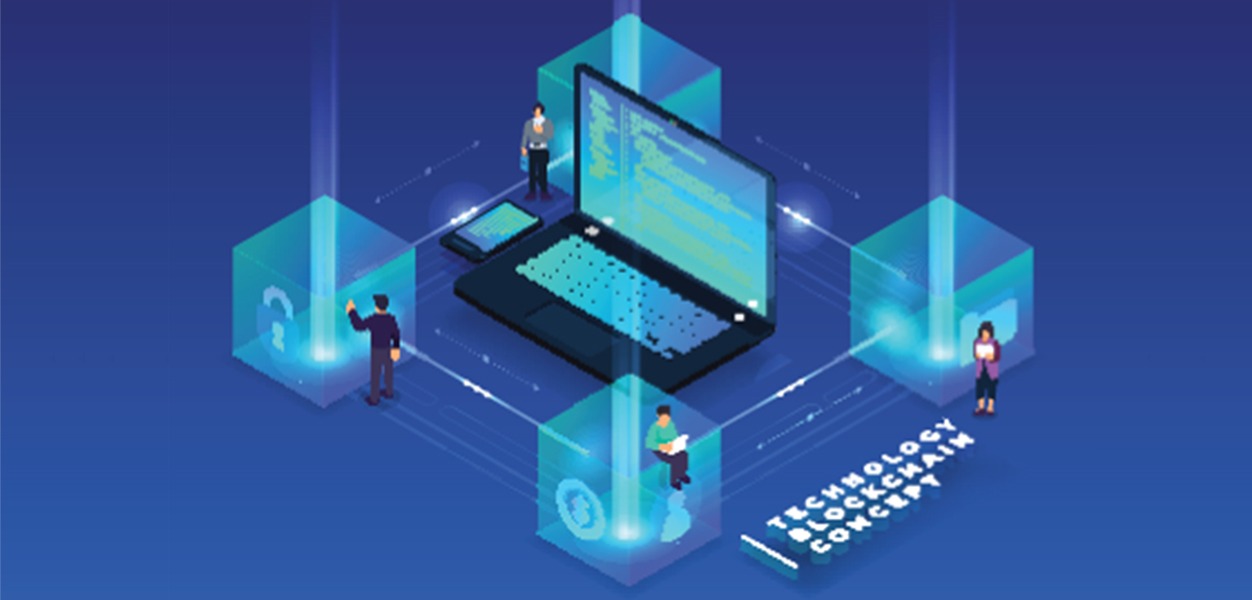With blockchain applications running the gamut from voting to genomics, it’s clear that there’s more potential to be uncovered for this emerging technology.In 2017, Bitcoin was the word on everyone’s lips when blockchain came to mind. Within a year, the price of a single Bitcoin had surged from US$830 to nearly US$20,000. As we now all know, this historic peak was quickly followed by the burst of the Bitcoin bubble. Although the Bitcoin value is around US$9,000 as of 15 June 2020, it is prone to sharp peaks or dips at any time.
Despite Bitcoin’s volatile history, the global blockchain market size is expected to have a compound annual growth rate (CAGR) of 69.4% from 2019 to 2025. This growth is largely driven by increasing industry demand for more efficient processes. The Asia Pacific (APAC) region, in particular, is poised to become the fastest-growing regional segment, considering the financial sector’s rising adoption of this digital asset and many APAC governments’ supportive approach towards blockchain.
Although blockchain can be applied in numerous industries, there are three sectors that stand to benefit the most from its adoption: financial services, government and healthcare. As detailed below, blockchain’s unique features could address common pain points in these sectors.

Talking dollars and sense
Trillions of dollars are circulated across the globe every day. Hence, ensuring the security and efficiency of these transactions is a key focus of the global financial services sector. Cross-border transactions, however, require intermediaries for information authentication. Though crucial, involving these intermediaries result in slower and costlier transactions, with customers bearing the brunt of it.
But the transparency of blockchain data paves the way for lower fees and real-time transaction processing. Blockchain-based payment network Ripple, for instance, can handle up to 1,500 transactions per second on its XRP ledger, which is an open-sourced digital asset for global payments. Similarly, an open-source network for currencies and payments known as Stellar relies on attaining consensus across a decentralised system to secure its transaction network too.
Blockchain-based platforms can also defend financial institutions from malicious attacks. Many banks still rely on outdated legacy systems to store sensitive information in a centralised database. These traditional databases are more prone to hacking attempts. On the contrary, if historical transaction data is publicly recorded on the blockchain, any attempt to retroactively manipulate the data becomes part of the record itself. This way, blockchain’s decentralisation makes it less susceptible to malicious attacks since there is no single point of failure, making banking systems that adopt this technology less risky.

A face and voice for the people
The reality is that over one billion people worldwide lack access to basic modern-day services, such as opening bank accounts and owning mobile phones, simply because they cannot legally prove their identity. Eighty one percent of these John and Jane Does live in Sub-Saharan Africa and South Asia, indicating the huge untapped potential that blockchain-driven identity management could have in these regions.
Solving this identity crisis with blockchain starts with the idea of self-sovereign identity (SSI) where people create and control their own identity information, instead of relying on centralised government databases.
Two prominent blockchain-based SSI solutions are Civic and SelfKey. Both systems follow the same principle: users own all personal data found on their profiles, with the data’s privacy and security assured by blockchain architecture. Users then choose who to share their data with, and authentication happens immediately without passing through a third party.
Voting is another use case for blockchain technology in the public sector. It’s no secret that voting machines are in need of an upgrade: they’re costly, slow, hackable and generally difficult to access. Such pain points could easily be addressed through blockchain-based voting ecosystems like Agora. Their online environment makes voting more accessible to all and eliminates paper ballot-related costs since voters’ data are validated almost instantaneously through the consensus system.
In addition, the blockchain’s immutability and transparency deters third parties from tampering with the polling results, and minimises fraud and corruption instances. In 2018, Agora was put to the test during the Sierra Leone presidential elections, where it outperformed manual tally processes by providing results five days earlier than expected.

The true potential of health data
With the boom of genetic-testing companies like 23andMe, concerns over genomic data ownership have grown in prominence. After all, such companies have profited greatly from reselling the genetic data of millions of unwitting consumers to third parties in the name of medical advancements.
The question is: who owns this treasure trove of genetic data? According to Nebula Genomics, there’s no doubt that the information belongs to the consumer.
Like its competitors, Nebula offers direct-to-consumer genetic testing. What distinguishes it from the rest is that users can submit their DNA anonymously and pay for sequencing with cryptocurrency. Similar to SSIs, users own their genomic data and can earn incentives for sharing it with interested parties.
Aside from genetic testing, blockchain could also revolutionise electronic health record (EHR) systems. As in previous examples, centralised databases and the inaccessibility of personal data plague conventional EHR systems. Not all EHR systems are compatible with one another, which would pose difficulties when sharing crucial medical information.
Patientory and the Singapore-based Medilot are two platforms implementing blockchain for EHR management. Patients are able to store their medical information on a secure, easily accessible blockchain architecture on these platforms. Moreover, they are free to share their medical records to relevant stakeholders without any compromise on data integrity and patient privacy, thanks to blockchain’s immutable and anonymous nature.
During IPI’s landscape study* on local blockchain patents in 2019, the results showed that more than 10 Singapore-based organisations, such as Razer and Crowd Ventures, had filed for patents that range from virtual currency and IP management to transactions tracking and processing. As exciting as these blockchain applications may seem for a better future, it’s worth remembering that there’s no need to jump on the bandwagon simply because others are doing so. There should be a real pain point within your industry or scope of work that blockchain can resolve; otherwise, its value is only incremental. The true potential of blockchain remains to be seen, but you can be sure it will continue disrupting the status quo of many more sectors, to build a better future for all of us
* For more information about IPI’s landscape study services, please contact [email protected]

